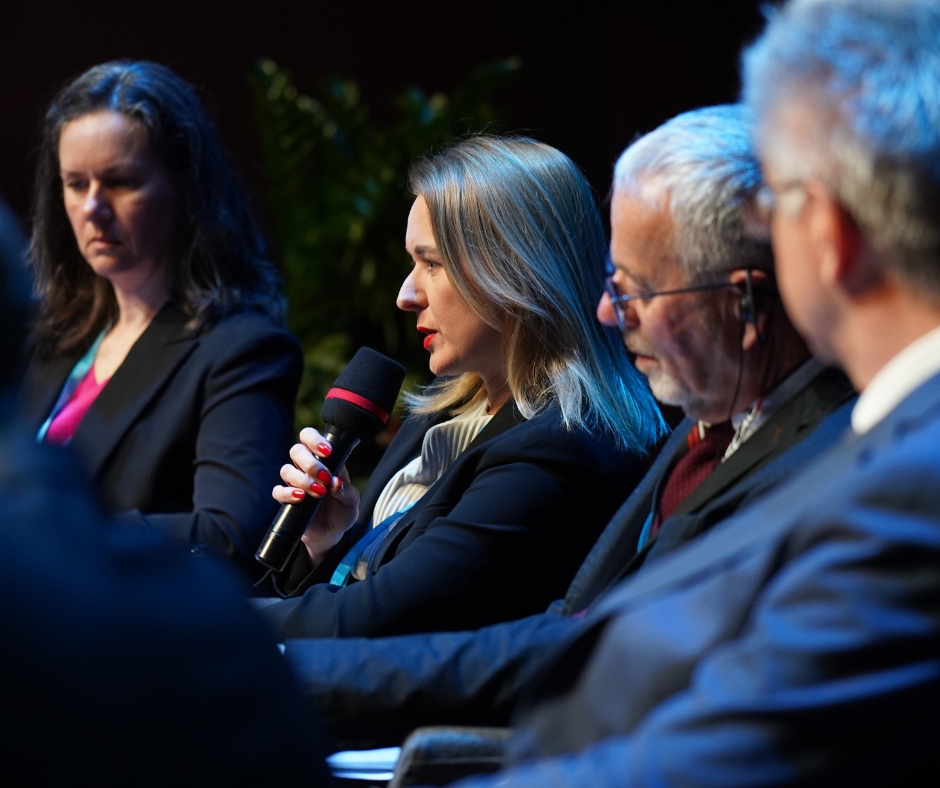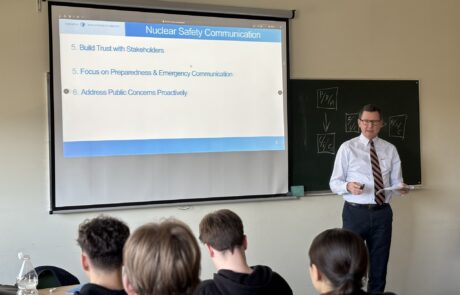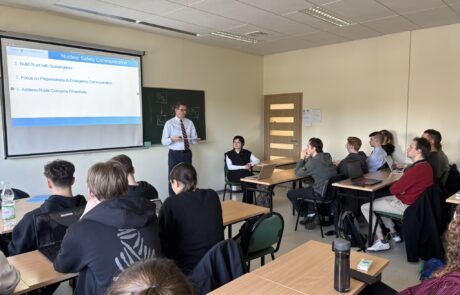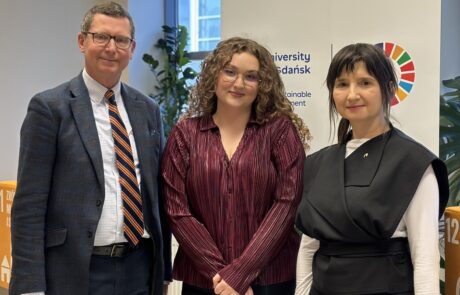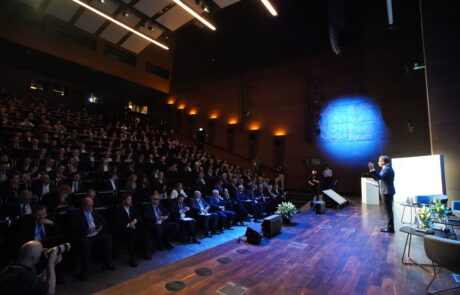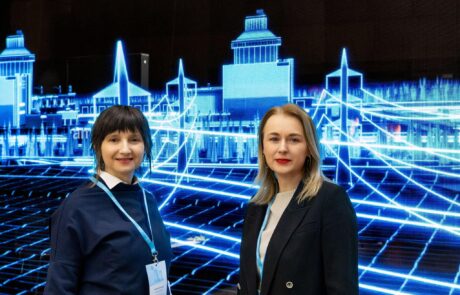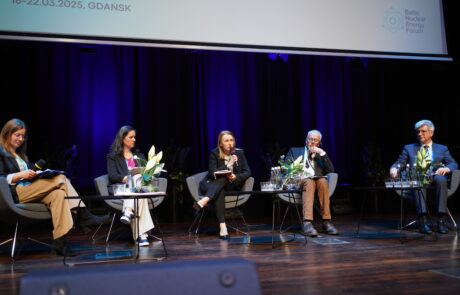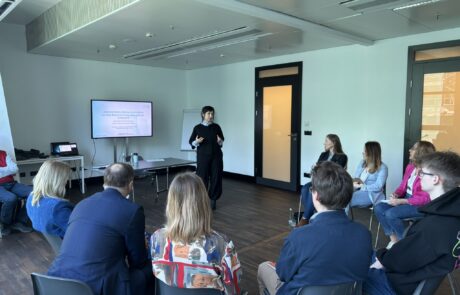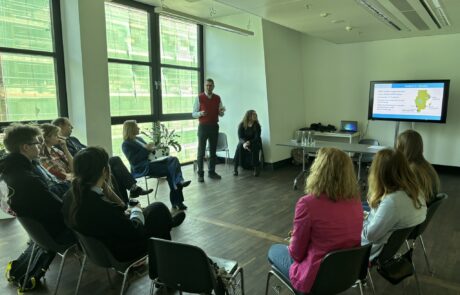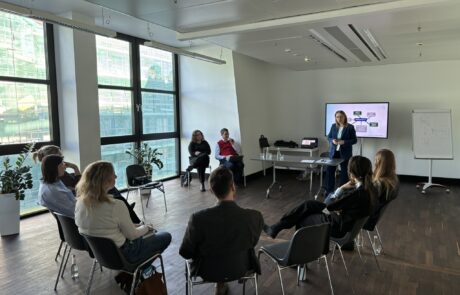The Baltic Nuclear Energy Forum is a conference that brings together experts, scientists and practitioners in the field of nuclear energy. It provides a platform for the exchange of experience and discussion of the latest trends in the sector. This year’s second edition of the BNEF was held on March 18-20, 2025 at the European Solidarity Center in Gdansk. The organizers of the event were the Business for Climate Foundation, Fahrenheit Universities and the UN Global Compact Network Poland.
The Center for Sustainable Development, together with the Pomeranian Regional Planning Office, co-organized Panel 10 entitled “Dialogue without Secrets. Nuclear Power Plant Neighborhood: Knowledge, Benefits, Challenges” and the workshop ‘Local Information Committees/Local Safety Committees: good European practices.’ As part of the event, CZRUG hosted four foreign experts on public communication in the context of nuclear power plant operations: Meritxell Martell Lamolla and Csaba Dohóczki (The Group of European Municipalities with Nuclear Facilities), Doug Bamsey (nuclear expert) and Mats Rosen (former local safety secretary at the Barsebäck nuclear power plant in Sweden).
Mats Rosen’s visit to UG
Mats Rosen served for seventeen years on the Local Safety Committee of the Barsebäck Nuclear Power Plant in Sweden, serving as chairman in recent years until the plant’s closure.
On March 18, 2025, a meeting with students entitled “Safety Communication and Safety Culture” (Safety Communication and Safety Culture) was held at the Faculty of Social Sciences at the University of Gdansk. During the lecture, Mats Rosen presented the history of the development of nuclear power in Sweden, emphasizing that effective communication with local communities is based on understanding their needs, transparency of the message and building trust. The expert also drew attention to threats such as disinformation and fake news.
The Swedish expert was accompanied during his visit to Gdansk by Jagoda Koszalka, a student of Scandinavian Studies at the University of Gdansk doing her internship at the Center for Sustainable Development.
Neighborhood of a nuclear power plant
On March 19, the Center for Sustainable Development and the Pomeranian Regional Planning Office co-organized Panel 10, titled “Dialogue without Secrets. Nuclear power plant neighborhood: knowledge, benefits, challenges”. The moderator of the meeting was Monika Adamczuk (CZRUG), and the discussion was attended by Dr. Sylwia Mrozowska, Prof. UG, Plenipotentiary of the Rector for cooperation with the nuclear sector , Dr. Dagmara Struminska-Parulska, Prof. UG, Laboratory of Toxicology and Radiation Protection of UG, Meritxell Martell Lamolla and Csaba Dohóczki from the Group of European Municipalities with Nuclear Facilities, and Doug Bamsey, chairman of the community forums at the Hinkley Point C power plant.
The panel guests noted how crucial effective, audience-tailored communication, conducted in a continuous and transparent manner, is in the process of building a nuclear power plant. It is especially important that information reach local communities through channels that are natural and trusted to them – such as local media, meeting places or neighborhood initiatives. Experts commented that the loss of public trust can happen very quickly, and rebuilding it is a difficult and lengthy process, especially in the context of a multi-year investment process such as the construction of a nuclear power plant.
Participants in the discussion stressed that there is a great need to involve a variety of stakeholder groups – from local government representatives to entrepreneurs and residents. They also pointed out the need to support local entrepreneurship and create tools that will enable local communities to make a real difference during all stages of nuclear power plant construction. Particular attention was paid to the so-called local content, i.e. maximizing the use of local resources, which can translate into economic growth and public support for the investment. The panelists also touched on the importance of landscape and cultural heritage – local communities are strongly connected to their surroundings and expect their lifestyle and sense of identity to be respected. Residents want to be seen as stewards of the area, not as passive observers of change.
In conclusion, participants agreed that dialogue and cooperation are key – only going through the investment process together, with respect for local values, can ensure its success and public acceptance.
Photos: Business for Climate Foundation.
State of local community knowledge on nuclear safety
The Center for Sustainable Development and the Pomeranian Regional Planning Office also co-hosted a workshop on the role of local nuclear safety committees and building a culture of safety and public trust titled. “Local Information Committees/Local Safety Committees: good European practices”. The workshop was led by Drs. Sylwia Mrozowska, Prof. UG, Dr. Barbara Kijewska, Prof. UG, Mats Rosen and Dr. Eng. Angelina Lobejko.
Mats Rosen, former chairman of the Safety Committee at the Barsebäck Nuclear Power Plant in Sweden, presented how the committee functions, pointing out the importance of the committee’s institutional and financial independence from the operators. The workshop discussed the importance of direct communication between local authorities, operators and residents, especially in the context of emergency situations. Based on analyses of the Chernobyl and Fukushima accidents, the need for education, clear procedures and systematic training was emphasized. The workshop concluded with a call for the creation of sustainable, legally mandated structures to ensure real community influence on safety issues.


